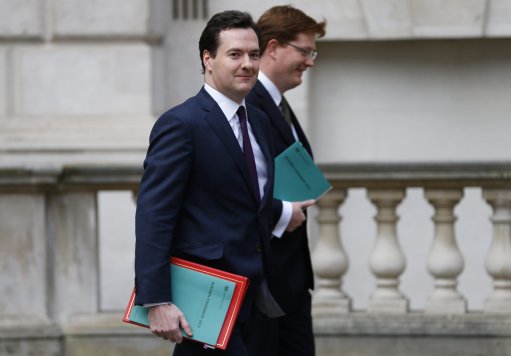Poor 'have to shoulder biggest burden' of austerity

Christians have reacted with disappointment to yesterday's Autumn Statement from George Osborne.
The mini-Budget from the Chancellor includes deep cuts to welfare as the period of austerity was extended by one year to 2017-18.
Most working age benefits - like Job Seekers' Allowance, employment and support allowance, income support and child tax credit - will be uprated by 1pc for the next three years.
While the changes to welfare will save the Government £3.7bn, Church Action on Poverty's Niall Cooper said the Chancellor had reinforced social division.
"In capping benefit increases – for working families as well as those out of work – the Chancellor has decided to shrink the deficit by squeezing the incomes of those who are already struggling to make ends meet," he said.
"Families reliant on benefits will be 6% worse off in real terms by 2015, and cumulatively loose a staggering £3.7 billion at a time when food and fuel bills are rising fast."
However, Mr Cooper welcomed measures to crackdown on tax avoidance, which include 2,500 more tax inspectors and £77m more for HMRC to chase tax evaders.
Caritas Social Action Network (CSAN) was similarly disappointed by the Autumn Statement, condemning it as "unwise and unjust".
The Catholic charitys chief executive Helen O'Brien said that the measures outlined in the Autumn Statement would undermine the safety net for people who have fallen on hard times.
"The social security system absolutely must provide individuals and families with enough to meet the fundamental costs of daily life. Increasing benefit payments at a rate so far below rent, food and utility prices is both unwise and unjust," she said.
"It risks leaving people without enough for their essential needs, jeopardising their health and wellbeing, whilst generating long-term costs that our communities will have to face further down the line."
Cathy Corcoran, Chief Executive of the Cardinal Hume Centre in Westminster added: "Many significant welfare restrictions are already set to come into force early in the new year.
"Breaking the link between inflation and benefits before the effects of these changes have even been assessed, is a potentially disastrous move that could cause unsustainable hardship for many people who are already struggling to get by."
Kevin Flanagan, Director of St Antony's Centre for Church and Industry in Manchester said: "We are already seeing increasing levels family poverty and homelessness, any further real-term reduction of benefits will only worsen this situation."
The head of Family Action, Helen Dent said the Chancellor had not done enough "to stem the lines of families at foodbanks".
She also said the Autumn Statement had not done enough to "make work pay" and ensure children with parents out of work are not pushed further into poverty.
"The biggest investment we can make in reducing future spending on prisons, health and social services in the future is intervening early in the lives of family and children to address disadvantage and poverty now," she said.
"While £5 billion investment in science schools and transport is welcome the value will not be recognised if it is at the price of cuts to the money available for early intervention and welfare."
Last week, the Bishop of Bradford, the Right Reverend Nick Baines and other Church leaders wrote to the Prime Minister warning of the impact cuts in public spending were having on communities.
The church leaders criticised political rhetoric labelling benefit claimants as "feckless" and "scroungers".
"We are concerned that the ideology behind many cuts and reforms serves to undermine fundamental principles of mutual care that are basic to our vision of a good society," they said.











